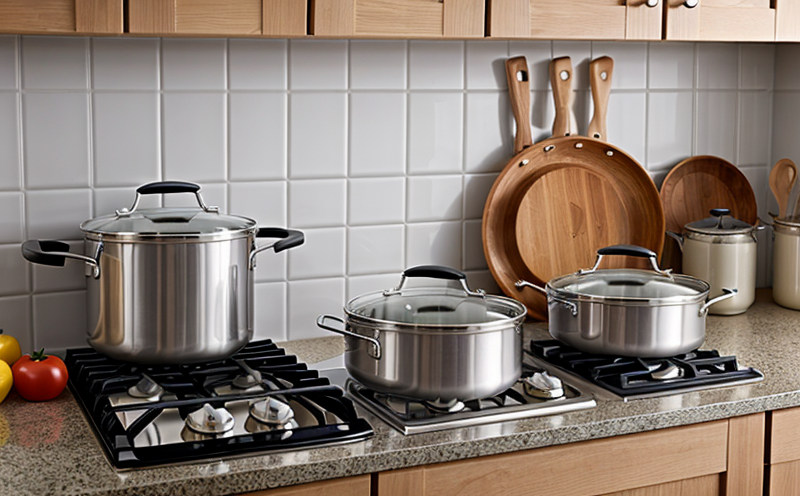Mechanical Strength Testing of Kitchenware
Consumer products and product safety testing is a critical aspect of ensuring that items like kitchenware meet quality standards, comply with regulations, and are safe for end-users. Mechanical strength testing specifically evaluates the durability and resistance to physical forces such as impact, compression, bending, or torsion.
Kitchenware comes in various materials—ceramics, metals, plastics, composites—and each type presents unique challenges during mechanical strength tests. For instance, glass products need to withstand thermal shock without cracking, while metallic items must resist dents and deformations under pressure.
The importance of this testing extends beyond the kitchen; it ensures that utensils, cookware, and related equipment are reliable in both domestic and commercial settings. Compliance with international standards such as ISO 6872:1994 for ceramic sanitary wares or ASTM D5360-08(2012) for plastics is crucial to gaining market acceptance.
Our testing laboratory uses advanced equipment like universal testers, impact testers, and tensile testers tailored for kitchenware. Specimens are prepared according to ISO 6872 or ASTM F459 standards, depending on the material type.
The process involves several steps: selecting appropriate test parameters based on product design; preparing the sample appropriately; conducting tests under controlled conditions; and finally analyzing results against specified criteria. This ensures that any potential flaws are identified early in development cycles or during production processes.
Scope and Methodology
| Test Type | Description | Equipment Used |
|---|---|---|
| Bending Test | Evaluates how a sample bends under load without breaking. | Universal Testing Machine (UTM) |
| Torsion Test | Assesses resistance to twisting forces which can occur during use. | Degree Torsion Tester |
| Compression Test | Mimics the pressure exerted when placing heavy items on top of surfaces. | Hydraulic Press |
In a bending test, samples are placed between two clamps and progressively loaded until they deflect by a specified angle or break. For torsion tests, specimens are rotated at a constant speed while measuring torque applied before failure occurs.
Compression testing measures the amount of force required to compress a sample to a certain percentage reduction in gauge length.
Benefits
- Increased Product Reliability: Ensures that kitchenware can endure typical usage without breaking or deforming.
- Enhanced Customer Satisfaction: Safe and durable products lead to higher customer trust and loyalty.
- Competitive Advantage: Demonstrates commitment to quality, helping manufacturers stand out in competitive markets.
The mechanical strength test also aids in product lifecycle management by identifying weak points early. This allows manufacturers to address issues before they become critical defects during production or distribution stages.
International Acceptance and Recognition
- ISO Standards: Many countries recognize ISO standards such as ISO 6872:1994 for ceramic sanitary wares.
- ASTM Specifications: ASTM D5360-08(2012) is widely accepted for testing plastic materials used in kitchenware.
Besides these global bodies, local regulations like those from the European Union (EU) also mandate compliance with specific tests. For example, under CE marking requirements, certain kitchenware must pass mechanical strength assessments to ensure they do not pose risks due to failure or collapse.





